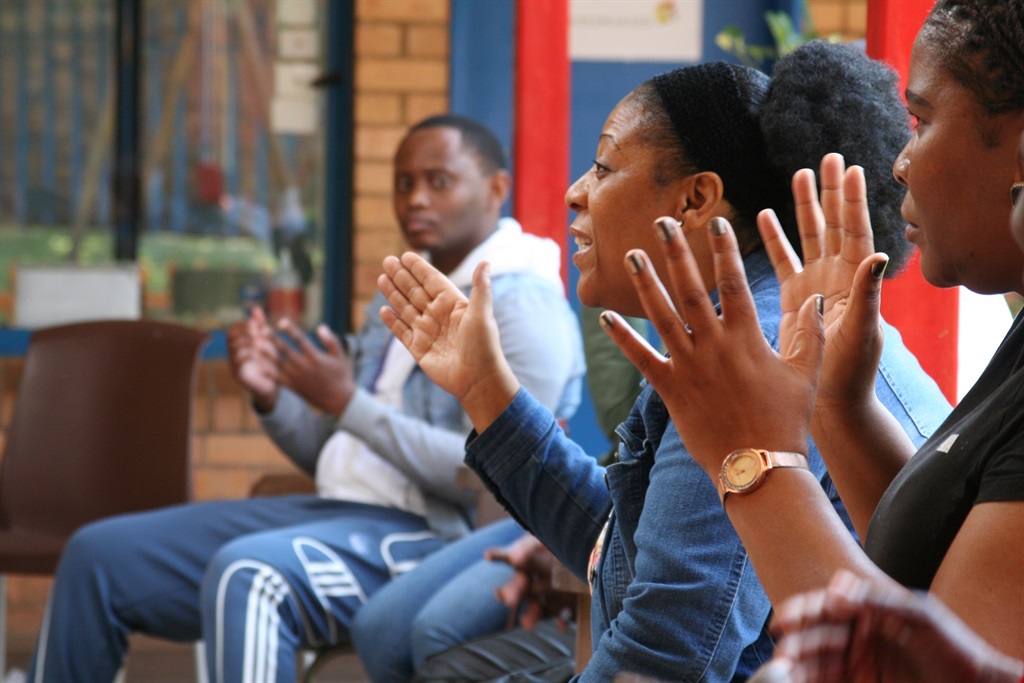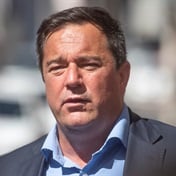
Hearing people often expect that Deaf people should accommodate and assimilate to the needs of hearing people and not the other way around, writes Susan Njeyiyana.
For the past 75 years, since the beginning of the Congress of the World Federation of the Deaf (WFD), Deaf people have gathered and shared valuable information about the importance of sign language and why they must be allowed to take the lead in developing and teaching national sign languages, which now enjoy official status in almost 75 countries around the world. Globally, there are more than 300 signed languages.
To commemorate the first WFD congress, September marks Deaf Awareness Month every year with the International Day of Sign Languages (23 September) and the International Week of the Deaf being observed during the last week of the month. In 2023, South African Sign Language (SASL) became the 12th official language of the country when it was signed into law by President Cyril Ramaphosa. It was also the first time that a language was signed into law and witnessed by many on national television and gained momentum on social media.
As a Deaf person, I believe this is a major step forward for SASL. The Deaf community must now focus on the implementation of SASL in all areas of life and show the private sector and government departments the right ways to deliver services to deaf and hard-of-hearing people in terms of accessibility as their human right.
A world without sound
At a recent silent walk in Cape Town, organised by the Deaf Federation of South Africa (DeafSA) in the Western Cape, hearing people were given earplugs to cover their ears and limit their ability to hear and cut background noise so that they could experience a Deaf person’s everyday life. This enabled the parents of deaf children, friends, and colleagues to realise how the world feels without sound and to feel silent in their own world and peaceful.
Hearing people often expect that Deaf people should accommodate and assimilate to the needs of hearing people and not the other way around. However, it is not just about deafness/hearing loss, but also about being Deaf with a capital D. Being Deaf means a person belongs to a specific cultural group and uses SASL as a primary language for communication. Being Deaf is just like being Xhosa, Tsonga, or Muslim, and using a language that differs from others and identifies our community. It means Deaf people are part of society and the hearing public therefore needs to gain insight into this cultural minority.
WATCH | St Vincent School for the Deaf - where SA's silent language is loudly celebrated
For example, there is a lack of understanding when it comes to media interviews with a Deaf person. Very often the focus is only on the interpreter or the Deaf interviewee’s face, while the presenter asks questions off-screen. This means the Deaf audience cannot see the interpreter, i.e. what the presenter is saying, or, alternatively, what the Deaf person is signing, while the interpreter voices over. Newspapers, in turn, often use offensive terms such as "hearing impairment" or “mute".
We have physical voices, but some Deaf people choose not to use their voices. Deaf people are aware that they have voices that are experienced as strange or different when they communicate with hearing people. We are forced to pronounce words with our voices and often we are unclear because we cannot hear ourselves. However, we are mocked for the way we sound when we are forced to use our voice. What is the point of learning to speak, how to pronounce properly, and learn to listen with the help of a hearing aid? It does not make us hearing in the sense that we cannot hear words; we only hear environmental sounds and learn to identify what they mean.
Funding for training has dried up
During a recent discussion hosted by the Wits Centre of Deaf Studies on the implications of SASL as 12th official language, panellists emphasised the importance of implementing Deaf education and the proper teaching of SASL through advocating and collaborating with businesses and organisations who are willing to support Deaf people's needs for accessibility as well as contribute the necessary funds for the promotion and development of SASL.
It should be pointed out that our government has already implemented the School Act that allows for SASL as a Language of Teaching and Learning (LOLT) in 2006, the Curriculum Assessment Policy Statement in 2015, and lastly, SASL as a school subject to obtain the National Senior Certificate with SASL as the first language and/or additional second language in 2018.
While the implementation of these pieces of legislation is commendable, there are still many challenges and very little or no progress in Deaf education. This is due to gaps that have not been filled, for instance, the lack of training for teachers of the Deaf who do not yet know most of the pedagogy in SASL. Government funding for this training has also dried up. We have Deaf teaching assistants who should be given the opportunity to study and train to become fully qualified teachers because they are the role models and specialists of our language when teaching deaf children as the first language (Deaf to Deaf). When employing teachers in schools for the Deaf, often the school would hire those who do not know SASL and do not have a qualification in sign language as an LOLT. This is problematic because the people who appoint teachers based on other qualifications do not realise the impact of deaf children’s education journey.
READ | 'Deaf education is failing our children': Mom of three shares the difficult path to diagnosis
There is also no early child development (ECD) in all schools for the Deaf and no support for the parents. Teachers also lack sufficient SASL resources. These take time and funding to create. Given these gaps in ECD and the foundation phase, it is crucial to employ Deaf teaching assistants who can become fully qualified teachers or hearing teachers who are fluent in SASL as an LOLT and know how to use SASL when teaching a Deaf pupil because the most important part of such pupil’s language acquisition is SASL. Only once the foundation of SASL has been established, can teachers introduce a first spoken language, for instance English, or another language depending on the policy of the school.
Many deaf children who are already in high school still lack the required writing and reading language skills due to a weak or non-existent language foundation. They perform better in SASL than in written languages despite their deafness because the hearing teachers think deaf children cannot hear the language to learn to read and write. However, deaf children are capable of learning the language like any other children, but they learn through different modalities than their hearing peers.
Hard work starts now
The primary focus of learning a language should be to introduce SASL first so that a strong foundation can be laid for building a secondary language. This will enable the children to perform better as they move through the different stages of their school journey.
Teachers need to have in-depth knowledge of SASL linguistics and should be as fluent in SASL as they are in other languages. They must have knowledge of teaching methodologies for SASL which is a requirement in Deaf Education. It is vastly different, and it cannot be assumed to be the same as teaching hearing learners – visual vs auditory. In Deaf education, teachers must adhere to and have in-depth knowledge of the pedagogy and rules of teaching a Deaf child.
We must continue to advocate for our language. Recognition was only the first step. Now the hard work really starts. We can avoid expensive and life-altering mistakes if we do it the right way from the beginning. I hope to see the positive changes that will spawn a Deaf generation who will own their language and culture by being the leaders in the growth, development, and research of SASL.
- Susan Njeyiyana is a deaf lecturer in the Department of General Linguistics at Stellenbosch University and teaches South African Sign Language acquisition as an additional language to hearing students.
*Want to respond to the columnist? Send your letter or article to opinions@news24.com with your name and town or province. You are welcome to also send a profile picture. We encourage a diversity of voices and views in our readers' submissions and reserve the right not to publish any and all submissions received.
Disclaimer: News24 encourages freedom of speech and the expression of diverse views. The views of columnists published on News24 are therefore their own and do not necessarily represent the views of News24.




 Publications
Publications
 Partners
Partners























